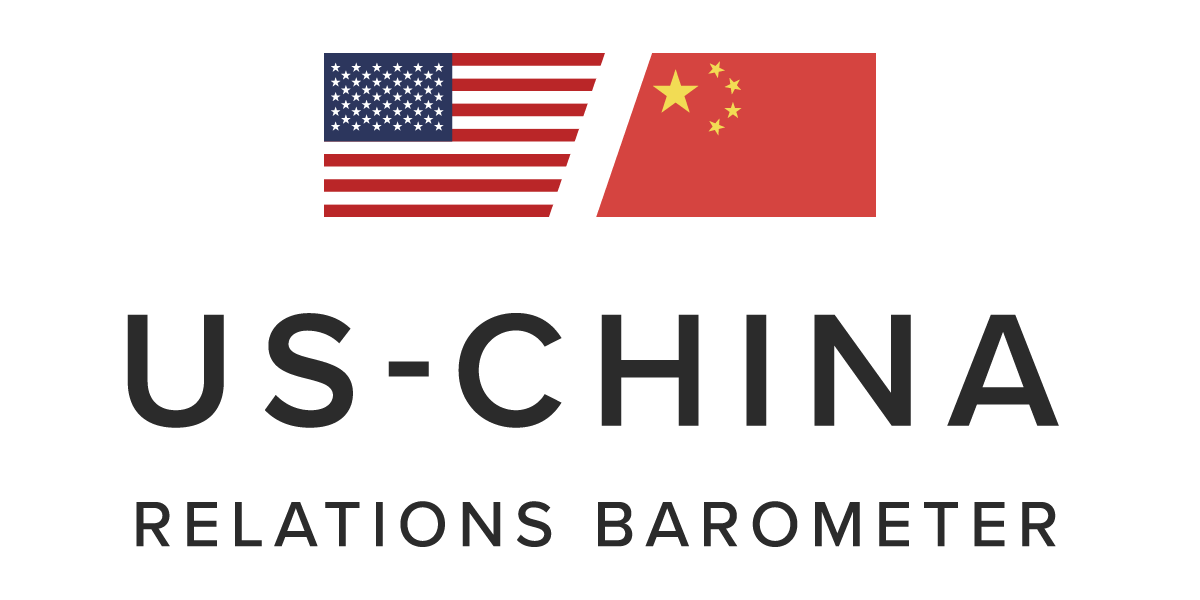

Against the backdrop of a multiyear trade war, heightened screening of cross-border investments, and persistent tensions over the South China Sea and Taiwan, Morning Consult’s U.S.-China Relations Barometer provides data-driven insights into public perceptions of bilateral relations between the two superpowers, as well as the risks and opportunities that lie ahead for companies and investors. The barometer tracks American and Chinese sentiment on bilateral relations across a variety of domains, including each country’s views of the other, whether they are locked in a cold war, and the likelihood of future military and economic tensions. The barometer is updated quarterly.
Download our latest report for a comprehensive analysis of the state of U.S.-China relations, and sign up for Morning Consult Global for our daily geopolitical email briefing.
KEY TAKEAWAYS
The outlook: The share of Chinese adults holding unfavorable views of the United States has declined by 7 percentage points since early November 2022. Elevated Chinese frustration with their country’s political leaders and policies, culminating in nationwide protests in the middle of that month, may have had a deadening effect on nationalist fervor thereafter. Similarly, the share of Chinese adults who said their country is in a cold war with the United States has fallen 9 points from a tracker high in October of last year, dipping below the share of U.S. adults holding the same view for the first time since May. For the first time since July, the share of Chinese adults who said they believe a U.S.-China cold war would be mutually destructive also outpaced the share who said China would win such a conflict.
How to respond: As bilateral tensions spiked last summer, numerous multinationals, once bullish on China, began to reconsider their operations there. Bearish corporate sentiment intensified amid draconian lockdowns in late 2022. Facing pronounced economic headwinds, Chinese President Xi Jinping has since signaled a softer foreign policy tone. Multinationals re-evaluating whether to keep routing their supply chains through China should nevertheless continue to exercise caution and hedge risk by diversifying their international operations. A softer touch may suit Xi at the moment, but his long-term perspective is unlikely to have transformed overnight, and virtually none of the underlying issues driving persistent tensions between China and the United States have been resolved.
COUNTRY PERCEPTIONS: THE VIEW ACROSS THE PACIFIC
Respondents in each country were asked if they have a favorable or unfavorable opinion of the other country
Respondents in the United States and China were asked whether they think the other country is an enemy/unfriendly or an ally/friendly
THE NEW COLD WAR CONTEXT
Respondents were asked whether the United States and China are in a cold war, or just in competition
Respondents were asked who would win if the United States and China entered into a new cold war
MILITARY AND ECONOMIC TENSIONS
Respondents in the United States and China were asked to predict the likelihood of bilateral military tensions increasing over the next 12 months
Respondents in the United States and China were asked to predict the likelihood of bilateral economic tensions increasing over the next 12 months
RELATED
ABOUT
Methodology
The U.S.-China Relations Barometer relies on data collected through Morning Consult’s proprietary survey research capabilities. Interviews are conducted online, and data are weighted to approximate representative samples of U.S. and Chinese adults. The U.S. data is weighted based on age, gender, educational attainment, race and region. The China data is weighted based on age, gender, educational attainment and region.
The United States and China country favorability data series are seven-day moving averages of daily data derived from surveys conducted among roughly 13,500 to 27,000 U.S. adults and 670 to 3,400 Chinese adults, with data reported on the first and 15th of each month. The underlying data series for the United States and China have unweighted margins of error of up to 1 percentage point and up to 4 percentage points, respectively. Morning Consult updated its weights for U.S. adults on April 1, 2022, and Jan. 1, 2023, and updated its weights for Chinese adults on Jan. 1, 2023.
All other data series reported in the barometer derive from monthly surveys conducted Feb. 11, 2022-Jan. 7, 2023, in the United States and Feb. 11, 2022-Jan. 7, 2023, in China, among representative samples of approximately 1,000 adults in each country, with unweighted margins of error of plus or minus 3 percentage points.
About Morning Consult
Morning Consult is a global decision intelligence company changing how modern leaders make smarter, faster, better decisions. The company pairs its proprietary high-frequency data with applied artificial intelligence to better inform decisions on what people think and how they will act. Learn more at morningconsult.com.
About the author
Jason McMann is Head of Geopolitical Risk Analysis for Morning Consult. He leverages the company’s high-frequency survey intelligence to advise clients on how to integrate geopolitical risk into their decision-making.
Scott Moskowitz is the Lead Geopolitical Risk Analyst, APAC for Morning Consult, where he covers China and the broader APAC region.
Email press@morningconsult.com to speak with a member of the Morning Consult team.